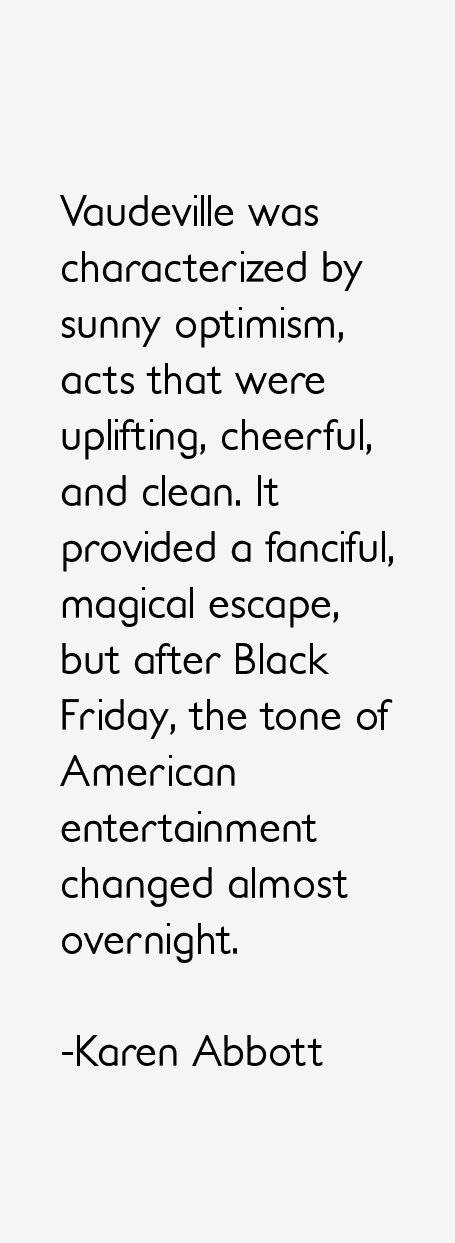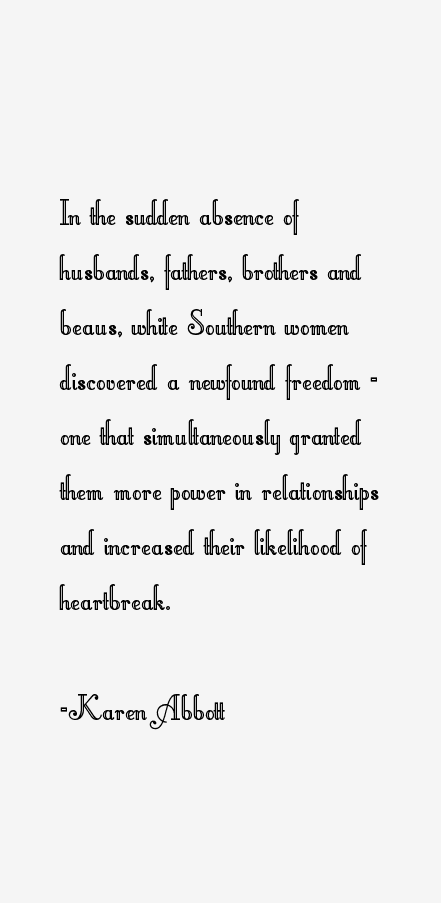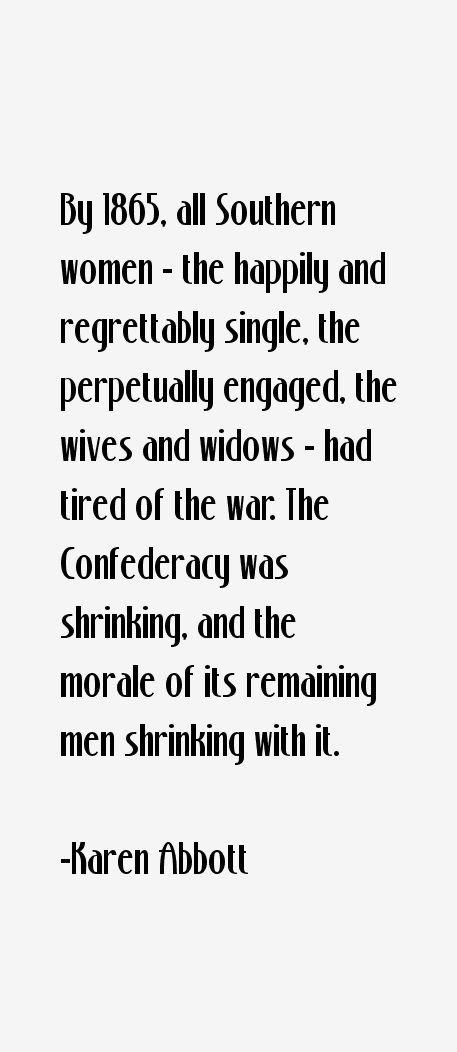Karen Abbott Quotes & Sayings
15 most famous Karen Abbott quotes and sayings (author). These are the first 10 quotes we have.

“Vaudeville was characterized by sunny optimism, acts that were uplifting, cheerful, and clean. It provided a fanciful, magical escape, but after Black Friday, the tone of American entertainment changed almost overnight.”
“I had spent five years not earning a penny, getting rejected. Thank God I had a husband who was supportive and encouraging. But I still said to myself, 'If the Everleighs doesn't sell, I'm finished with writing forever.' I was going to get an office job.”
“In the beginning of the war, Southern women wanted their men to leave - in droves, and as quickly as possible. They were the Confederate Army's most persuasive and effective recruitment officers, shaming anyone who shirked his duty to fight.”

“In the sudden absence of husbands, fathers, brothers and beaus, white Southern women discovered a newfound freedom - one that simultaneously granted them more power in relationships and increased their likelihood of heartbreak.”
“The ideas and practices of Franz Anton Mesmer, an 18th-century Australian healer, had spread to the United States and, by the 1840s, held the country in thrall. Mesmer proposed that everything in the universe, including the human body, was governed by a 'magnetic fluid' that could become imbalanced, causing illness.”

“America's first Olympics may have been its worst, or at least its most bizarre.”
“As a kid, I liked to write, but I didn't think that was a viable career choice. My dream, actually, was to be a white girl rapper and join Salt-N-Pepa - which obviously was a much more viable career choice.”
“At least in cities where the Confederate Army established a base of operations, young women were overwhelmed by the number of prospective suitors. Thousands of men flocked to the Confederate capital of Richmond, prepared to work in one of the government departments or to train for duty in the Army.”

“Before the Great Chicago Fire, no one took notice of Patrick and Catherine O'Leary, two Irish immigrants who lived with their five children on the city's West Side.”

“By 1865, all Southern women - the happily and regrettably single, the perpetually engaged, the wives and widows - had tired of the war. The Confederacy was shrinking, and the morale of its remaining men shrinking with it.”
Karen Abbott Quotes Rating
No Ratings Yet
Leave A Comment
























